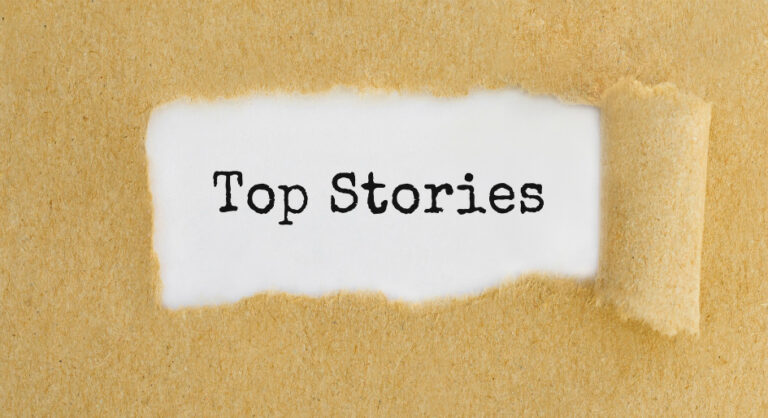The Cambridge Analytica Scandal: A Tech Story That Shook the World of Data Privacy
Keywords: Cambridge Analytica, Facebook data breach, data privacy scandal, social media privacy, user data misuse, tech scandal, Facebook scandal 2018, digital privacy
Introduction
In an era where data is often dubbed the new oil, few incidents have demonstrated the power—and danger—of data misuse as clearly as the Cambridge Analytica scandal. This real-life tech story shook not only Facebook to its core but also challenged how tech giants handle user data.
In this in-depth blog, we’ll explore what really happened during the Cambridge Analytica scandal, how it changed the world’s view on digital privacy, and what lessons developers, businesses, and users must learn in its aftermath.
What Was the Cambridge Analytica Scandal?
The Cambridge Analytica scandal refers to a major data breach in which millions of Facebook users’ personal information was harvested without consent and used for political advertising.
Who Was Involved?
- Facebook: The social media giant whose platform was exploited.
- Cambridge Analytica: A political consulting firm linked to the 2016 Trump campaign.
- Aleksandr Kogan: A researcher at Cambridge University who developed the app that collected the data.
When Did It Happen?
The data harvesting began around 2014, but the scandal exploded into public view in March 2018, when whistleblower Christopher Wylie revealed the scope of the abuse in a series of reports by The Guardian and The New York Times.
How Did the Data Breach Happen?
The breach didn’t happen through hacking or breaking into servers. It exploited Facebook’s own API permissions.
Step-by-Step Breakdown:
- Kogan’s App: Aleksandr Kogan created a Facebook app called “thisisyourdigitallife.” It was a personality quiz, typical of what you see on Facebook.
- User Consent: Around 270,000 users downloaded the app and gave it permission to access their data.
- Friends’ Data Access: Back then, Facebook’s API also allowed access to the friends’ data of each user who authorized the app—without those friends’ explicit consent.
- Data Harvesting: This design flaw allowed Kogan to collect data on over 87 million users.
- Transfer to Cambridge Analytica: The data was passed to Cambridge Analytica, violating Facebook’s platform rules.
What Was the Data Used For?
Cambridge Analytica used this data to build psychographic profiles of voters. These profiles were then allegedly used to:
- Deliver micro-targeted political ads
- Influence the 2016 US Presidential Election
- Possibly affect the Brexit referendum
The Fallout: How Facebook Responded
Public Backlash
- Hashtags like #DeleteFacebook trended globally.
- Users and experts began questioning the security of their data on social media platforms.
Legal Action
- Facebook CEO Mark Zuckerberg was summoned to testify before US Congress and European Parliament.
- Facebook was fined $5 billion by the Federal Trade Commission (FTC) in 2019.
Platform Changes
- Facebook restricted third-party access to user data.
- The Graph API was overhauled to prevent friend-of-a-friend data sharing.
- New privacy controls and transparency tools were introduced.
Impact on the Tech World
For Tech Companies:
- Sparked a wave of GDPR (General Data Protection Regulation) enforcement in the EU.
- Influenced the California Consumer Privacy Act (CCPA).
- Tech firms began investing more in compliance and ethical design.
For Users:
- Raised awareness about the value of personal data.
- Increased adoption of privacy-first platforms like Signal and ProtonMail.
- Users became more selective about app permissions and data sharing.
SEO Takeaways from the Cambridge Analytica Scandal
If you’re a tech blogger or developer, here’s how this scandal can help inform your own SEO and digital strategies:
1. Trust is a Ranking Factor
Google considers user trust and site credibility in its ranking algorithms. Ensuring transparency in how you handle data will increase not just user loyalty but also your domain authority.
2. Privacy Policies Matter
Having a clear, accessible privacy policy isn’t just legal compliance—it’s an SEO advantage. Users and search engines both value sites that respect privacy.
3. Content on Digital Privacy Is Evergreen
If you’re in the content marketing or blogging space, producing long-form articles on topics like user data security, ethical AI, or compliance regulations can generate consistent organic traffic.
Lessons Learned: How to Protect User Data Today
Whether you’re a startup founder, a web developer, or just an everyday user, the Cambridge Analytica scandal offers crucial takeaways:
- Audit Third-Party Apps: Regularly review which apps have access to your data—especially on platforms like Facebook, Google, and Twitter.
- Use Privacy-First Tools: Encourage the use of browsers like Brave, extensions like uBlock Origin, and messaging apps like Signal.
- Limit Data Collection: If you’re building apps or websites, only collect the data you absolutely need. Use anonymization where possible.
- Educate Your Users: Create resources or FAQs that explain how their data is used.
- Encrypt Everything: From messaging apps to data at rest—encryption should be a default, not an afterthought.
Conclusion: Why the Cambridge Analytica Scandal Still Matters
The Cambridge Analytica story is more than just a chapter in Facebook’s history—it’s a turning point in the conversation about technology and ethics. It forced the world to re-evaluate what it means to give consent online, how data is weaponized, and who should be held accountable.
As we move into a world dominated by AI, Big Data, and IoT, privacy-first design, ethical coding, and transparent business models aren’t just good practices—they’re survival strategies.
Frequently Asked Questions (FAQs)
Q: Was Facebook hacked in the Cambridge Analytica scandal?
A: No. The data was collected through Facebook’s own API under outdated and permissive rules.
Q: What is Cambridge Analytica?
A: It was a political consulting firm that used data analytics to influence elections through targeted advertising.
Q: How can I protect my data on social media?
A: Use strong privacy settings, limit third-party app access, and be cautious with the information you share.
If you found this article helpful, feel free to share it with your friends or colleagues. You can also explore more insightful content about tech, privacy, and digital trends here on asadqi.com.
Stay informed. Stay safe.



